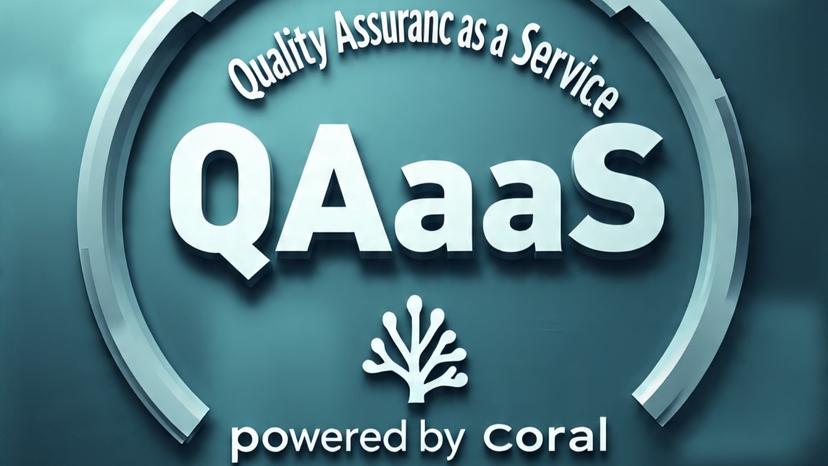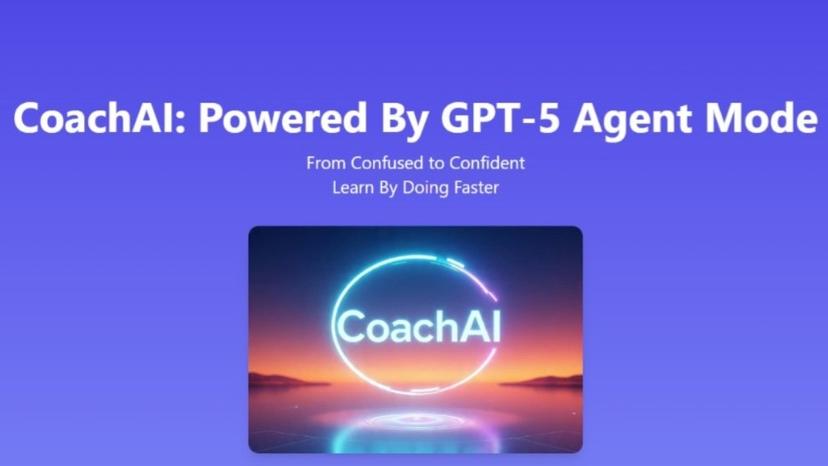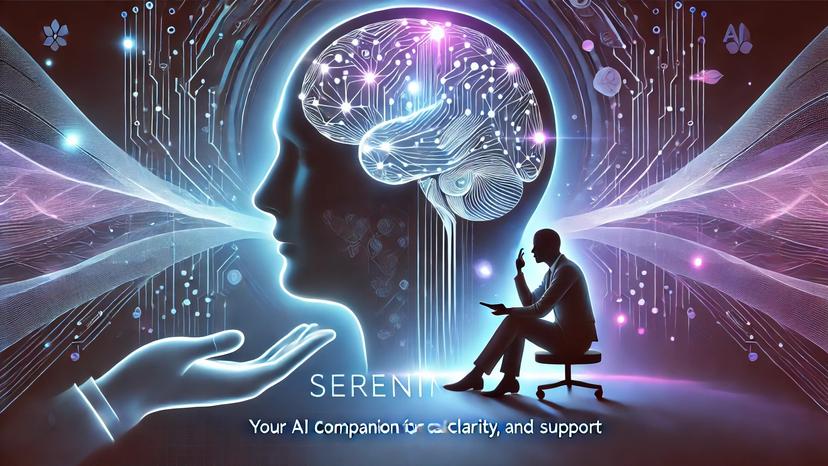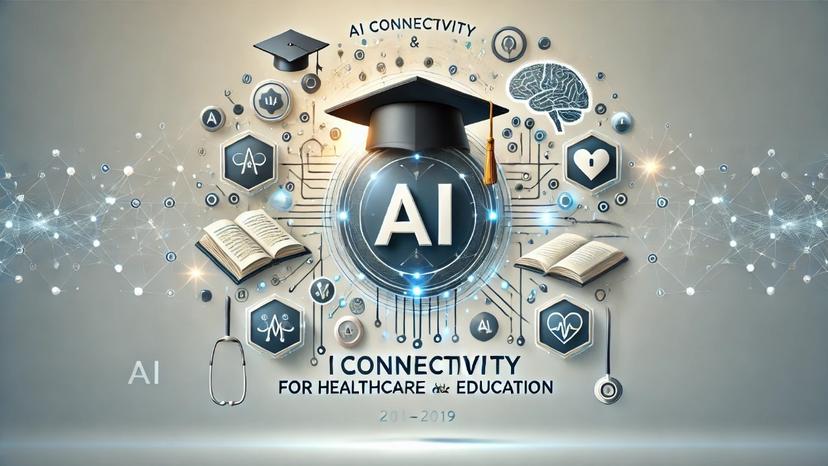
QAaaS-MVP (Quality Assurance as a Service) implements the “Internet of Agents” concept by connecting multiple specialized AI agents into a cohesive system. Each agent performs distinct tasks—repository cloning, automated testing, code aggregation, and unit testing—while communicating through a central server for orchestration. This project demonstrates real-time agent registration, heartbeat monitoring, and task execution, allowing developers to automate QA pipelines efficiently. The modular architecture supports easy addition of new agents, integration with GitHub repositories, and optional Coral Studio monitoring. QAaaS-MVP showcases scalable AI-driven automation, making software development faster, more reliable, and smarter.
21 Sep 2025

CoachAI is an AI-powered personal assistant designed to simplify learning new applications. Users provide natural language instructions, and CoachAI automatically executes the actions on a virtual canvas while logging every step in an interactive transcript. Each step can be replayed on hover for better understanding, and the entire session can be exported as PDF or Word for later reference. By leveraging GPT-5 Agent Mode, CoachAI reduces the time and frustration associated with mastering new apps, empowering users to learn faster, more efficiently, and confidently. It’s scalable to any app, providing a seamless learning experience.
24 Aug 2025
.png&w=828&q=75)
This project introduces an innovative approach to network management by integrating Al-powered network monitoring with a voice-enabled chatbot. The primary goals are to proactively predict network failures and simplify the often complex process of network troubleshooting. Traditional network monitoring systems tend to be reactive, alerting administrators to issues only after they occur, and often require specialized expertise to interpret the data. This project offers a solution by leveraging artificial intelligence to predict potential failures before they impact network performance, coupled with a user-friendly, voice-enabled chatbot to assist with resolving network issues. Imagine being able to anticipate a network outage before it happens, and then resolving the issue with a simple voice command. This project showcases the powerful integration of Al, voice technology, and network monitoring. Key components include Al for failure prediction, weather-based monitoring, a voice chatbot, and email alerts, creating a comprehensive and intuitive network management system.
2 Mar 2025

SereniMind – Your AI Companion for Calm, Clarity, and Support is a next-generation AI chatbot designed to provide a safe and supportive space for individuals experiencing mental health challenges. Unlike traditional chatbots, SereniMind remembers previous interactions, enabling users to have ongoing, context-aware conversations that feel more natural and human-like. The chatbot is powered by FastAPI (backend), React (frontend), and deepseek-r1 AI model, ensuring efficient, accurate, and empathetic responses. Users can start new conversations or continue existing ones, with each chat session being uniquely identified and stored securely. Key features include: - Context Retention: Ensures seamless back-and-forth communication. - User-Specific Conversations: Allows individuals to access past messages and continue discussions. - Fast & Secure: Optimized API responses with user authentication. - Scalability: Can be extended to support multimodal interactions (voice, image), multilingual AI, and sentiment analysis. SereniMind is not a substitute for professional help but serves as an empathetic companion that encourages self-care and emotional well-being. With future enhancements like therapist integration, sentiment tracking, and mobile accessibility, SereniMind aims to bridge the gap between AI support and human emotional needs.
16 Feb 2025

Enhancing infrastructure and accessibility for healthcare and education is essential to bridging gaps in underserved regions. This project leverages AI-driven solutions to provide real-time demand scores and actionable insights for effective infrastructure planning. Using advanced machine learning models and APIs, the system helps stakeholders prioritize and optimize efforts in these sectors. For education connectivity, the system evaluates indicators like out-of-school rates, enrollment rates, and geographic data to identify regions with inadequate infrastructure. It uses Random Forest models to predict demand and recommend initiatives like building schools, establishing digital learning hubs, or allocating educational resources in high-need areas. In healthcare, the platform incorporates factors like facility type, ownership type, and population density. It assigns weighted scores to calculate demand and leverages K-Means clustering for regional analysis, combined with Gradient Boosting for accurate predictions. This helps recommend expanding networks, upgrading hospitals, or deploying telemedicine in underserved areas. The project features a user-friendly frontend visualization tool built with React and Google Maps APIs. Users can interactively select regions on a map, view demand scores, explore clusters, and access recommendations in real time. A key highlight is the LLM-based recommendation engine, which generates tailored suggestions based on real-time data. For education, it may suggest building schools or launching e-learning platforms, while for healthcare, it can recommend facility upgrades or mobile healthcare units. These recommendations adapt dynamically to evolving needs, making the platform a valuable tool for governments, NGOs, and private organizations to drive change. This system showcases the potential of AI and large language models in improving infrastructure, fostering inclusivity, and addressing challenges in global healthcare and education.
26 Jan 2025